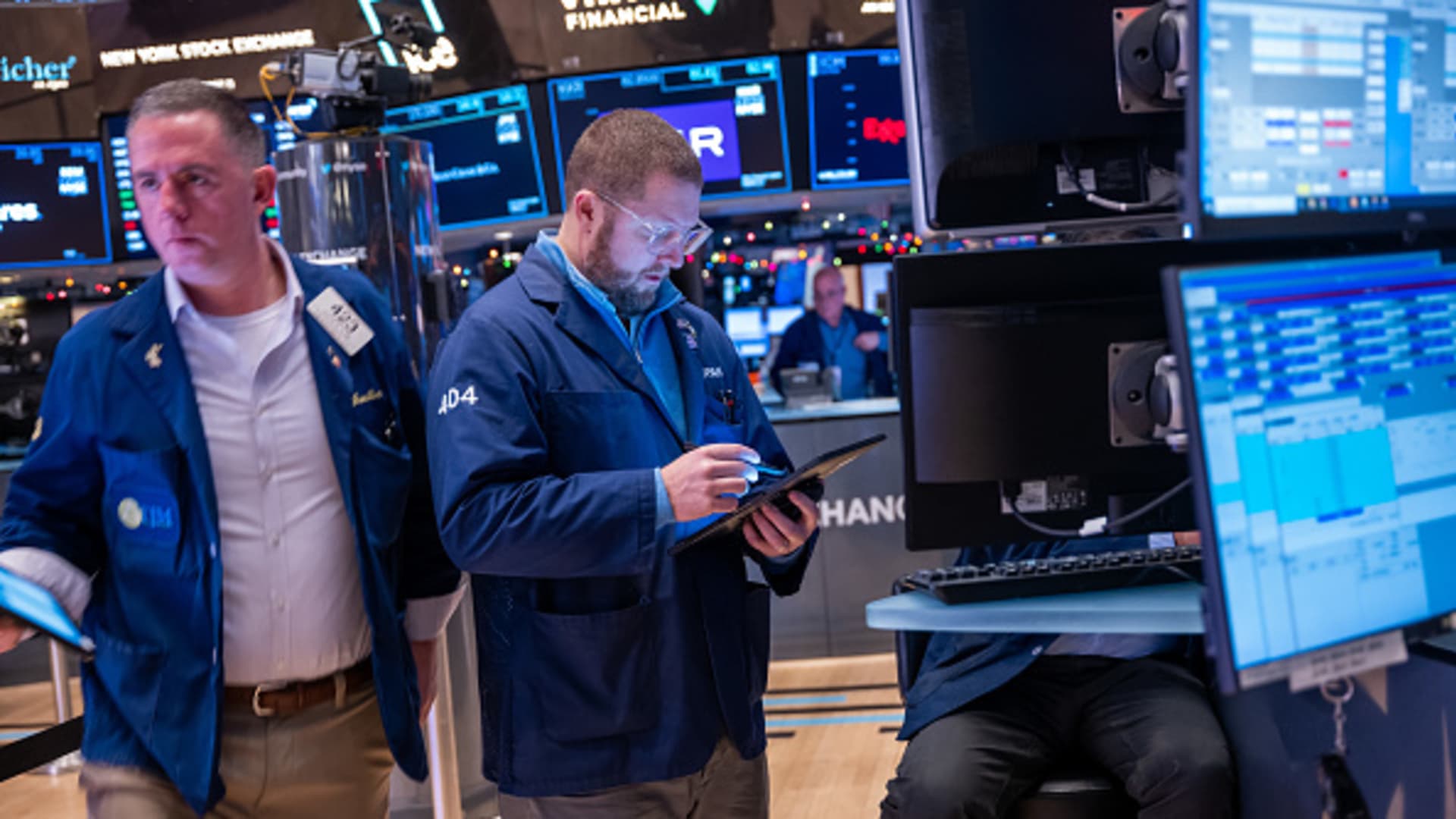Treasury yields posted steep losses on Thursday after the latest inflation reading came in hotter-than-expected, pushing expectations for an interest rate cut from the Federal Reserve further out.
The yield on the 10-year Treasury note slid more than 6 basis points at 3.968%. It has been hovering around the 4% mark for much of the week. The 2-year Treasury yield shed more than 11 basis points to reach 4.256%.
Yields and prices move in opposite directions. One basis point equals 0.01%.
The December consumer price index came in hotter than expected, with the index rising 0.3% on a monthly basis, and 3.4% on a 12-month basis. Economists polled by Dow Jones were anticipating readings of 0.2% and 3.2%, respectively.
However, so-called core inflation, which excludes volatile food and energy prices, came in line with expectations. Core CPI rose 0.3% for the month and 3.9% from the year-ago period, compared to respective estimates of 0.3% and 3.8%.
The Federal Reserve in December said it was expecting to cut rates in small increments three times this year. But minutes from the meeting that were published earlier in January showed that significant uncertainty remains about the direction of interest rates and that some policymakers have also not excluded the possibility of rates going higher still.
Many investors are hoping that rates will be cut more than the Fed itself is anticipating and that cuts will begin as soon as March. Markets were last pricing in an around 61% chance of the first rate cut taking place then, according to the CME FedWatch Tool.
“This print should challenge the markets expectations of rate cut timing. There is nothing in the report to cause the Fed to hurry to cut rates,” wrote Alexandra Wilson-Elizondo, deputy chief investment officer of multi-asset solutions at Goldman Sachs Asset Management. “However, because it was not too hot, it should leave the hopes of a soft landing intact.”
The CPI print will be followed on Friday by December’s producer price index, which tracks inflation on a wholesale level.
— CNBC’s Jeff Cox and Sarah Min contributed to this report.

